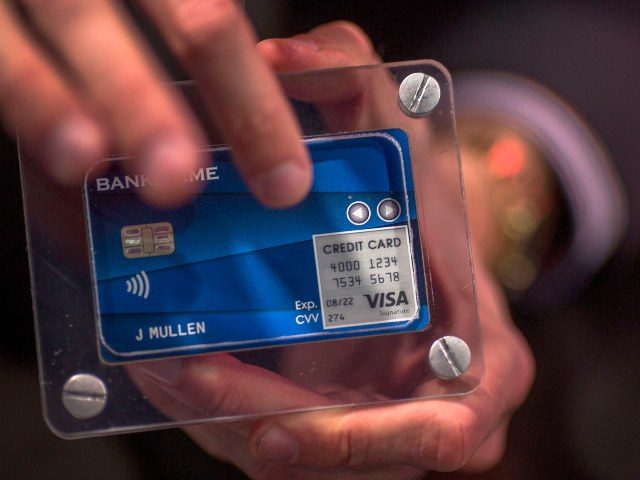Following news of the recent Capital One data breach which saw over 100 million Americans and 6 million Canadians left vulnerable, here are some ways to protect your personal data.
Breitbart News recently reported that a 33-year-old transgender woman who worked as a software engineer in Seattle has been arrested in relation to a massive data breach which puts over 100 million Capital One credit card applicants at risk. Paige A. Thompson allegedly accessed information from the Capital One bank through an improperly managed security feature and posted this information on a data-sharing site, a criminal complaint alleges.
Capital One told NBC News in a statement that the breach affected approximately 100 million individuals in the United States and approximately 6 million in Canada. Capital One insists, however, that no credit card account numbers of login details were accessed in the breach, and that less than one percent of social security numbers have been compromised.
CNBC has listed some ways in which those that believe they may have been affected by the data breach can protect themselves:
1: Change All Passwords
Capital One plans to notify those that have been affected by the breach, but updating the passwords that may be linked to your Capital One bank or credit card accounts is good practice regardless. CNBC spoke with Ted Rossman of CreditCards.com who stated that this is something that users should be doing on a regular basis. “Use a password aggregator such as LastPass to ensure strong, unique passwords for all of your logins,” Rossman stated. Password aggregators such as LastPass and DashLane have both become popular in recent years and help to protect user data.
2: Freeze Your Credit
Rossman stated that freezing your credit report “is the best way to prevent a criminal from opening an unauthorized account in your name,” and added that only one in four U.S. adults have their credit frozen despite multiple major data breaches in recent years. In order to freeze your credit, contact the three major credit bureaus Equifax, Experian, and TransUnion, separately.
If you freeze your credit, you will need to unfreeze it in order to apply for credit products in the future such as a personal loan or mortgage. Security expert Joseph Steinberg added that although a good step, a credit freeze is not the ultimate solution: “A credit freeze is not going to stop the bigger problems,” said Steinberg. “A credit freeze doesn’t do much for identity theft. Everybody comes [to these breaches] with the assumption that there’s something to do, and the reality is, sometimes, there isn’t anything a consumer needs to do.”
3: Set Up Credit Monitoring
Capital One has stated that it plans to offer free creditor monitoring and identity protection to customers affected by the breach but that may take some time to come into effect, setting up your own now may be a faster and safer solution. You can do it yourself by requesting your annual free credit reports from Equifax, Experian, and Transunion, or you can set up a monitoring service through sites such as Credit Karma which will alert you about recent activity on your credit reports.
If you were affected by the 2017 Equifax data breach, you may actually be eligible for up to 10 years of free credit monitoring. Capital One states that it “is unlikely that the information was used for fraud or disseminated,” but it doesn’t hurt to have a solid credit monitoring service in place.
4: Record Your Response
Data breaches are becoming more and more common with 1,244 taking place last year alone according to the Identity Theft Resource Center. Each one of these data breaches could lead to a class-action lawsuit from those affected, such as the one taken against Equifax. Charity Lacey, the VP of Communications for ITRC stated recently that its important for customers to take notifications of data breaches seriously and record what they did following the breach.
The ITRC even developed ID Theft Help app which has a log management tool which gives you the ability to track any actions taken following a data breach.
5: Stay Alert
Watch out for fake emails and phone calls impersonating Capital One attempting to steal your information, Capital One has stated that it will not be calling or emailing customers to ask for information such as credit card details, account information, or social security numbers. So be wary of anyone requesting those details while claiming to be from Capital One.
Read more about the data breach here.
Lucas Nolan is a reporter for Breitbart News covering issues of free speech and online censorship. Follow him on Twitter @LucasNolan or email him at lnolan@breitbart.com

COMMENTS
Please let us know if you're having issues with commenting.